This is a six part travelogue series exploring a section of Yunnan Province in China, from the autonomous prefecture of Xishuangbanna (西双版纳) to the remote village of Manwa Laozhai (曼佤老寨) and finally to the ancient tea forests of Jingmai (景迈).
- Xishuangbanna
- Village of Manwa Laozhai
- Mountains of Manwa Laozhai
- Canyons of Manwa Laozhi
- Ancient tea forests of Jingmai
- The Bulang People
After exploring the Buddhist temple in the village of Zhanglangcun (章朗村), we start descending towards our destination, Manwa Laozhai (曼佤老寨). This is an 800+ year old settlement made up of the Bulang ethnic people. This is A-Yun (阿云 – his moniker, meaning cloud), our friend’s home, a 200ish square mile, 1000+ people mountainous village, distributed across 10 or 12 smaller settlements near mountain springs. The descent is through a fairly new narrow paved road, with a series of switchbacks, gnarly drops on either side and spectacular terraces of sugarcane, passion fruit, tea and corn glistening in the setting sun. It’s a lot to soak in, but we are going to get an intimate look at it by roaming these forests, ridges and canyons over the next couple of days.
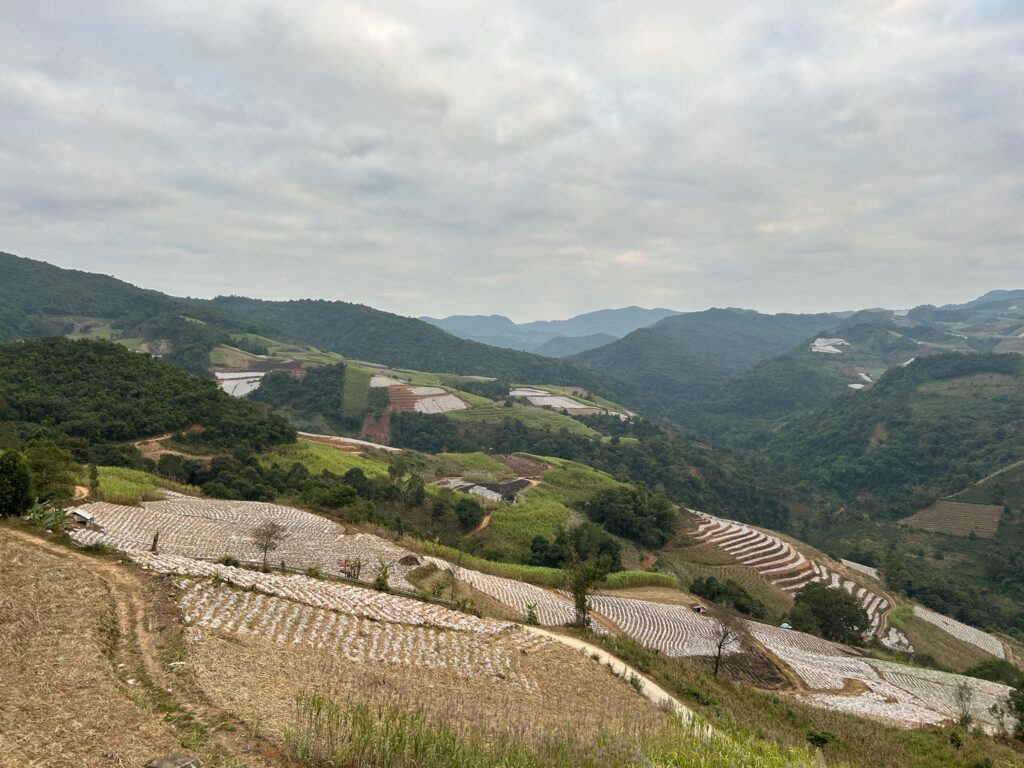
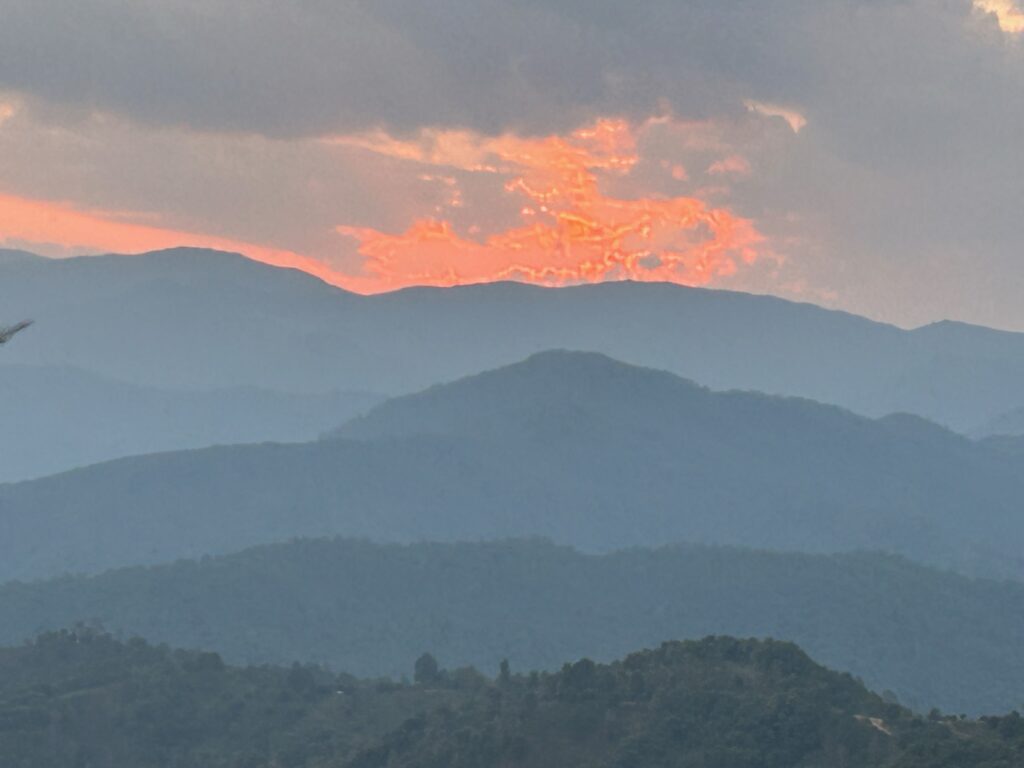
Yunnan: A-Yun’s home
A-Yun, our friend, is an enlightened one in his late 20’s, early 30’s. He was born and brought up here, but did his middle and high school in Xishuangbanna, went to college and worked a number of jobs all over China. Finally, he’s back in his village and after some soul searching and experimentation, has become a teacher 老师 to the kids, an herbal doctor 医生 to the people, scrambling across steep terraces and gnarly canyons, identifying & foraging medicinal herbs and curing ailments. Quite the inspiration!
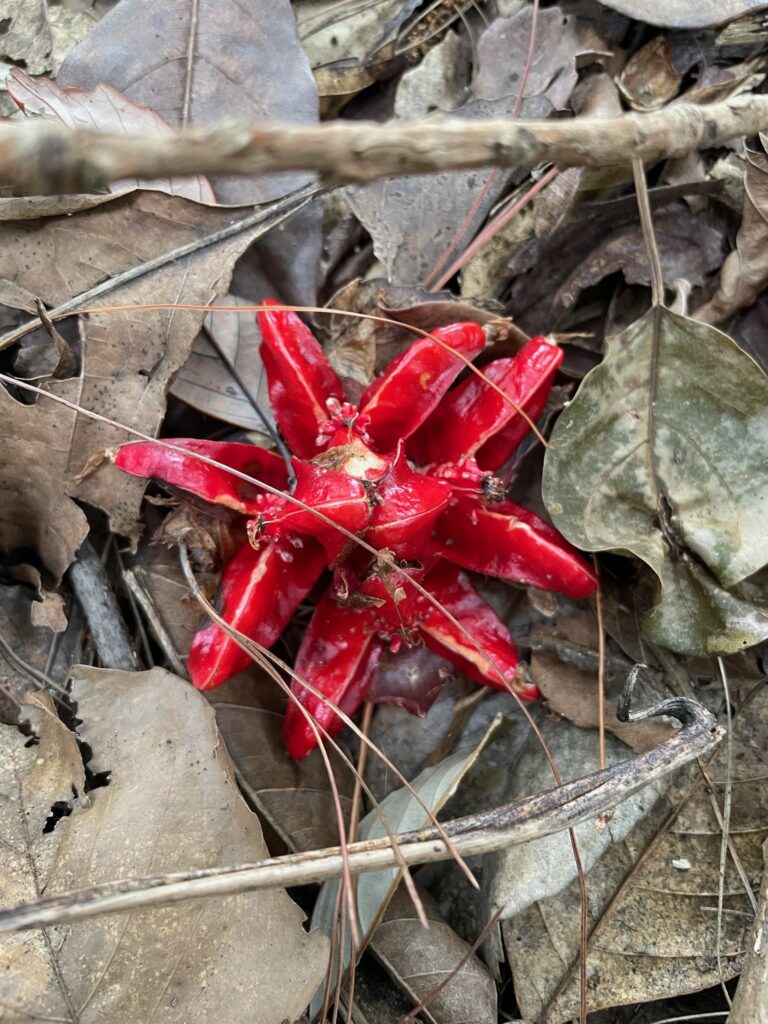
So before we get to the village, he pulls up the car to one of the many terraces on the steep hillside (this one’s a bit bare) offering to show us his home. Walking across his “driveway”, he harvests a sugarcane from the field and we happily feast on it. Totally brings back childhood memories!
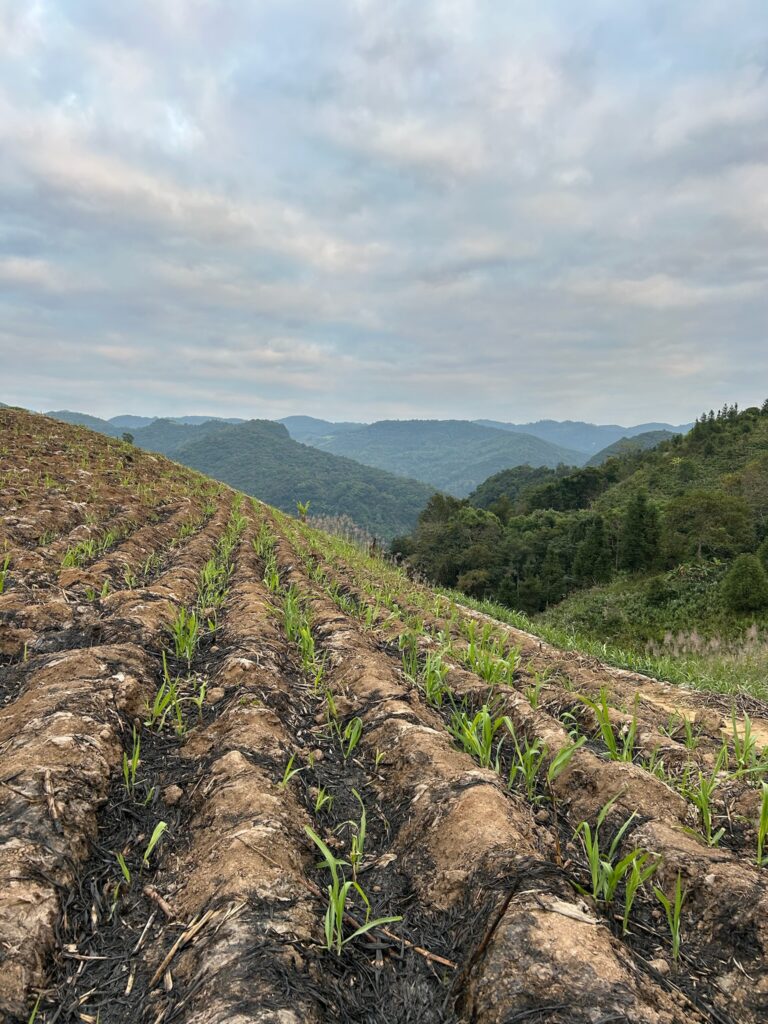
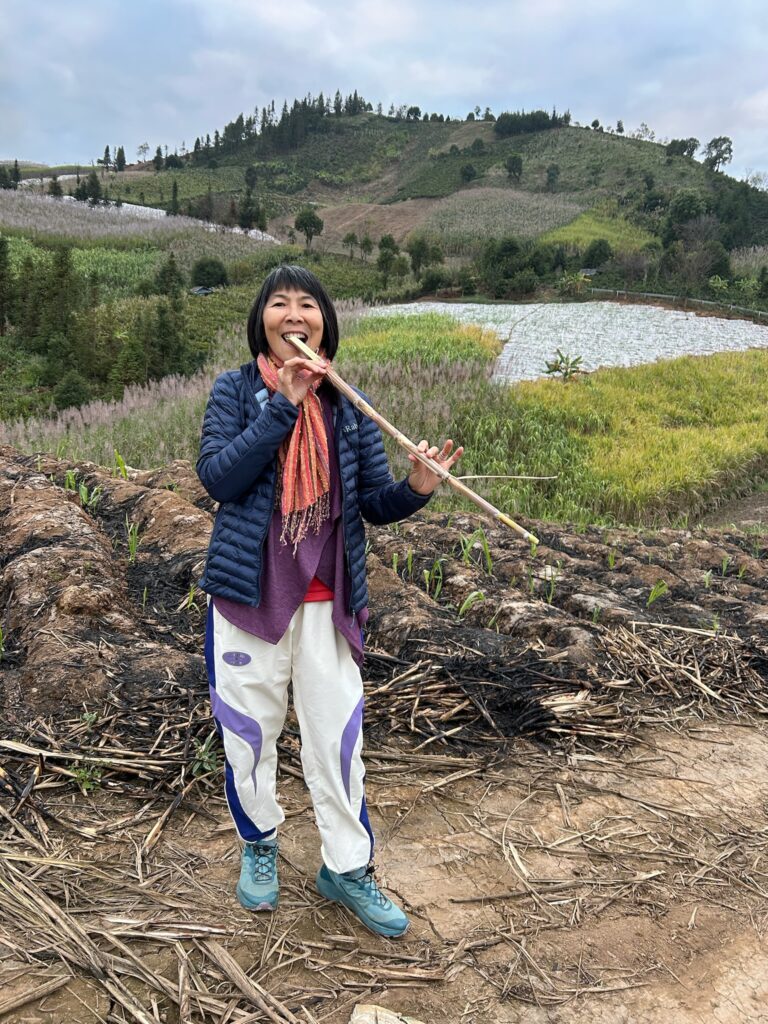
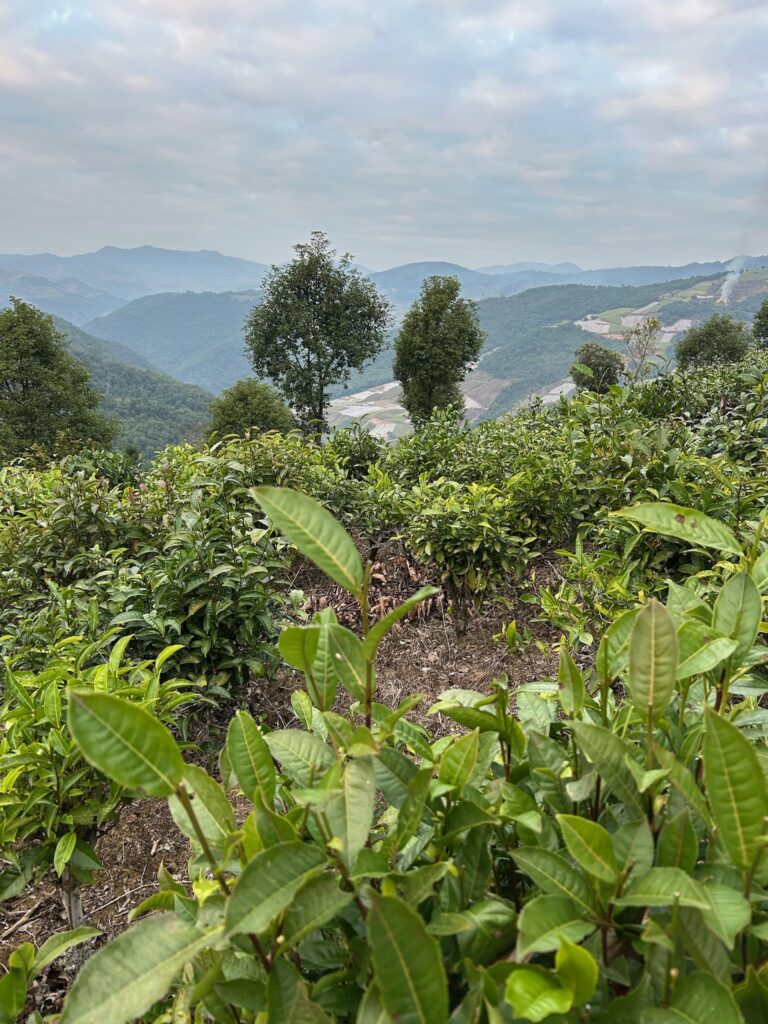
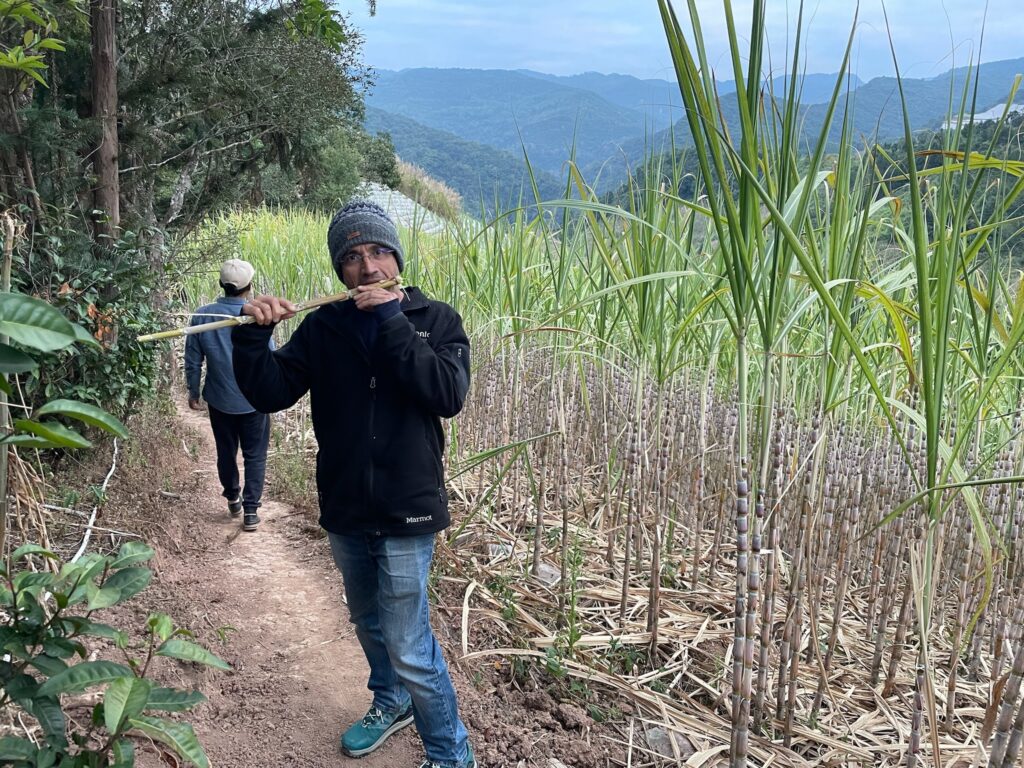
A-Yun has a shack that’s his bedroom, an outdoor kitchen, a library, and a garden where he grows his own vegetables. There’s a water hose that feeds him water from a mountain spring a mile across, but apparently his tract is 3m (9ft) lower from the source, so no issues with water pressure. And yup, there’s a solar panel with a battery that’s enough to charge the phone and some led lights for night time reading.
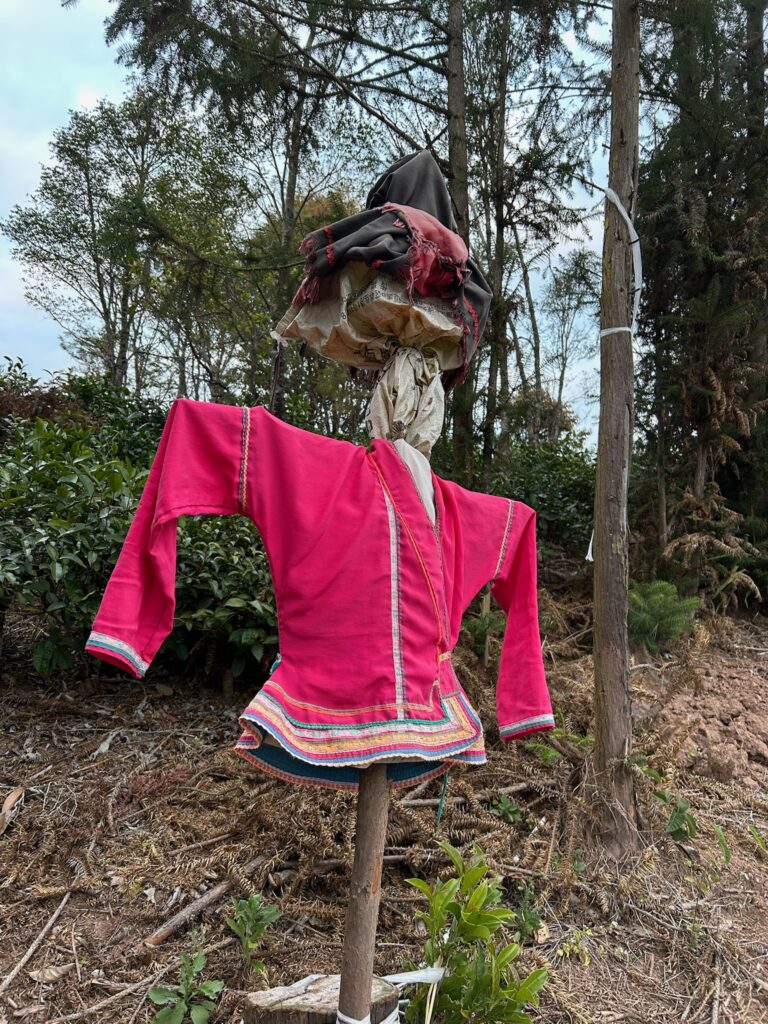
This is land that belongs to him and his family (free and clear if I may add). He’s mostly a vegetarian unless he’s out with us “tourists”. He harvests a sugarcane, peels off the skin and hands it to us. While we chew, suck on the juice and spit out the fiber (leave no trace hasn’t much meaning here when you are consuming locally sourced things that the land giveth and happy to take back), we walk around his humble yet everything-one-needs-to-be-happy abode. He brings the village children here during the weekends on a field trip, teaching them about the forest, history of their culture, learning Chinese, how to garden, how to cook, etc.
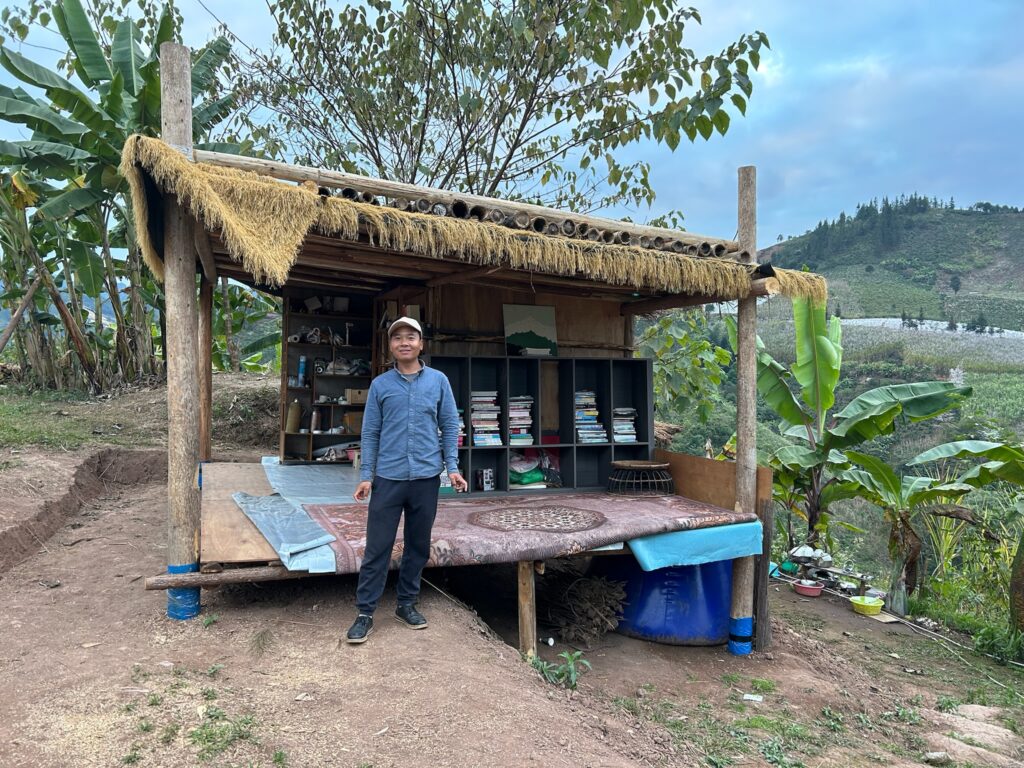
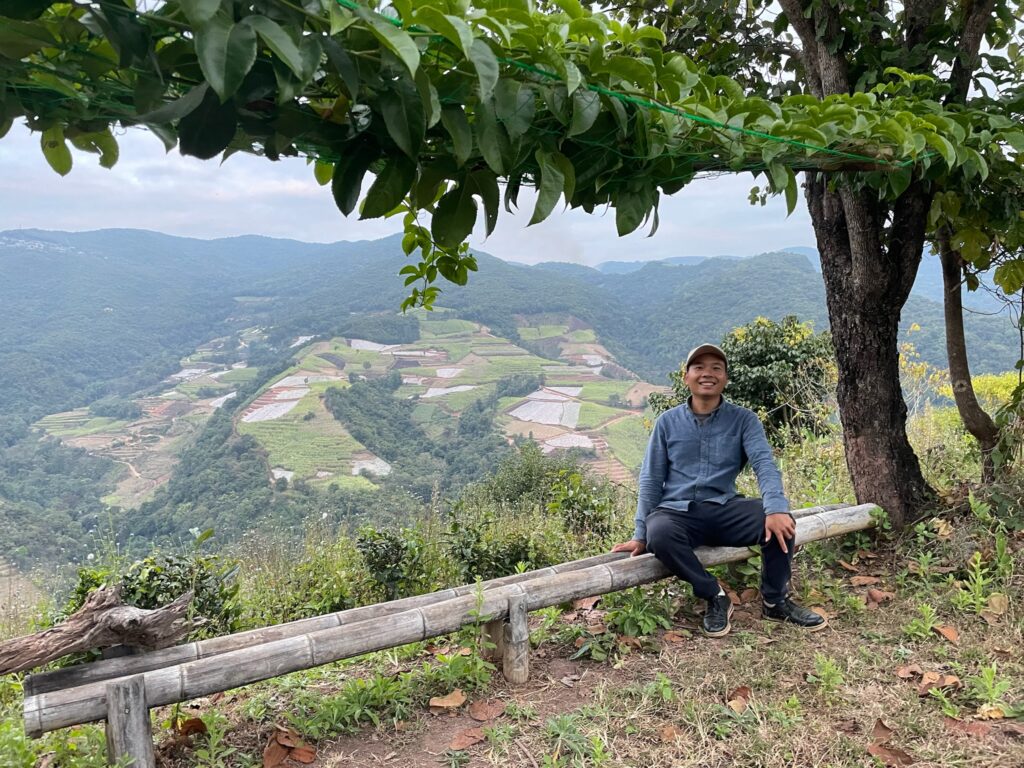
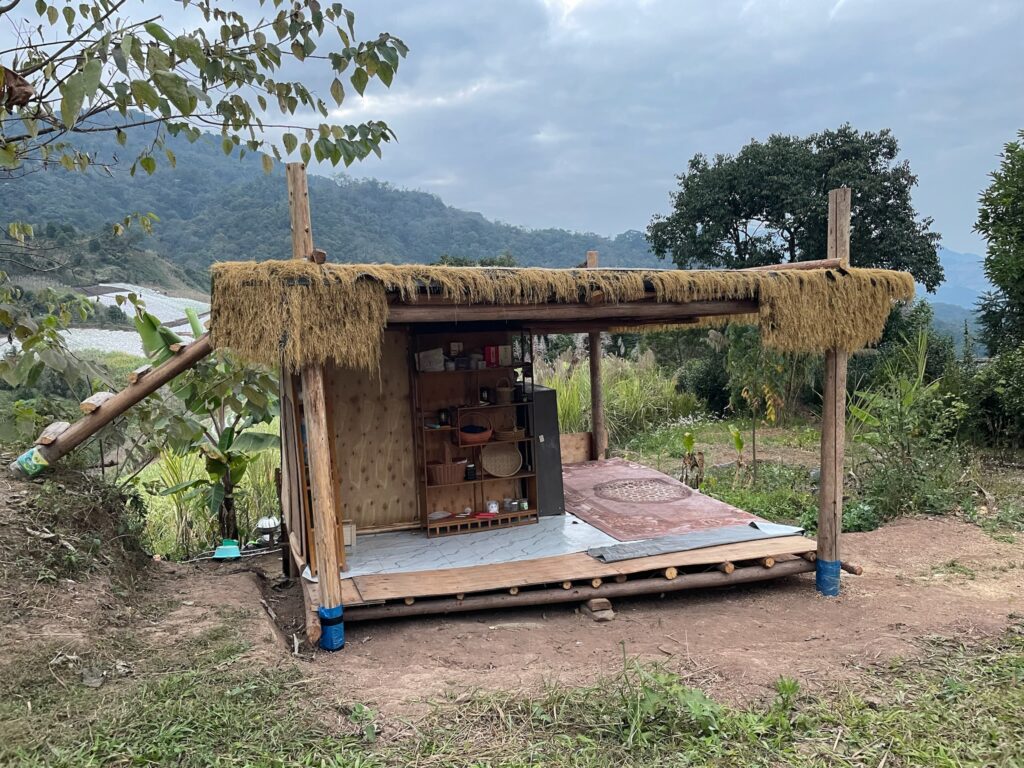
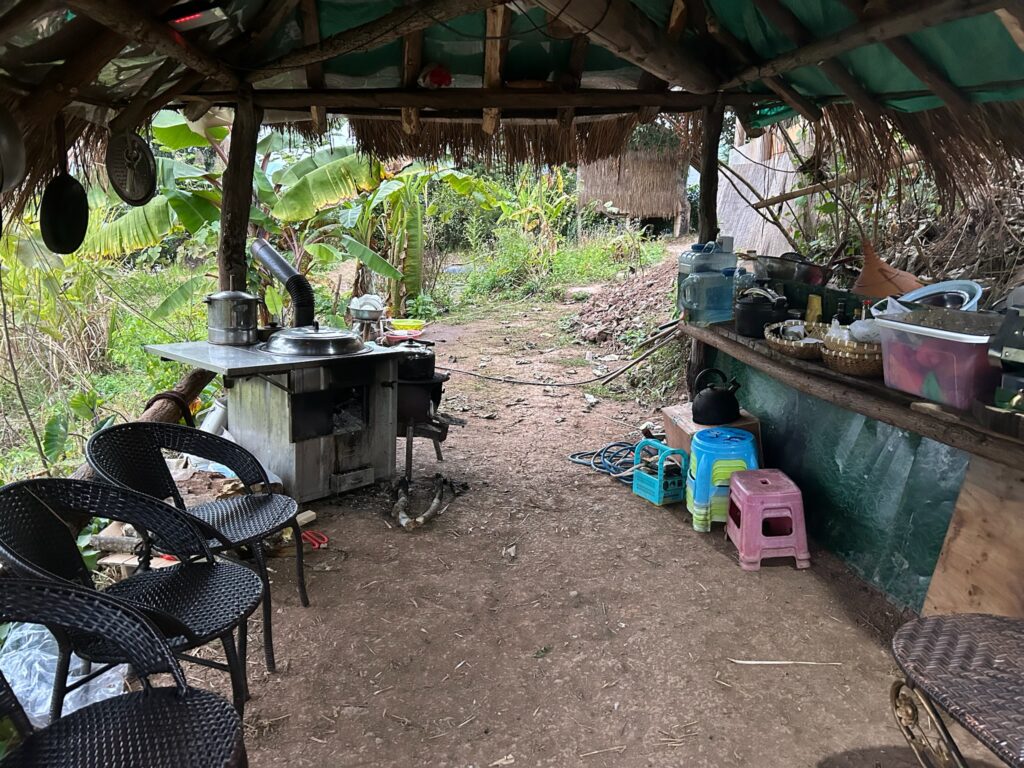
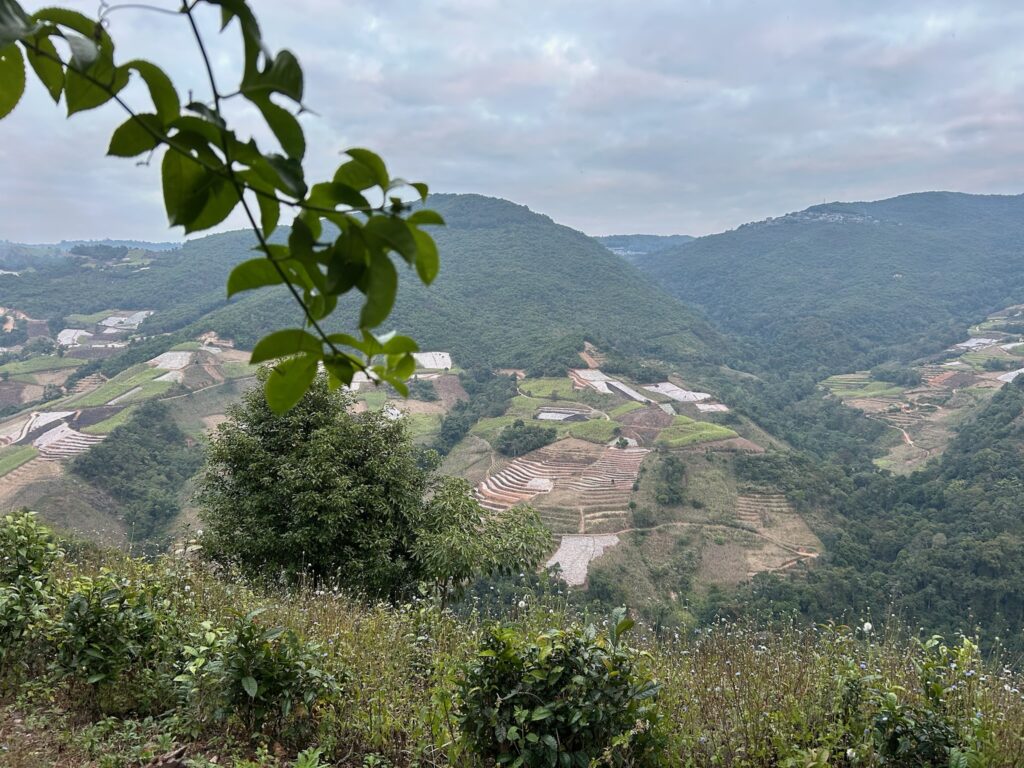
Yunnan: Village of Manwa Laozhai (曼佤老寨)
We eventually head out to the village and settle into our spartan, yet comfortable room. Yes, squat toilets and mountain spring water (we did bring our Sawyer filter). Our host cooks up a sumptuous meal with locally grown veggie, tofu, noodles & rice (splash of spicy chili peppers on the side) and we then get invited to go to a neighbor’s house. Reminds me of Tarahumara camaraderie and communal living again!
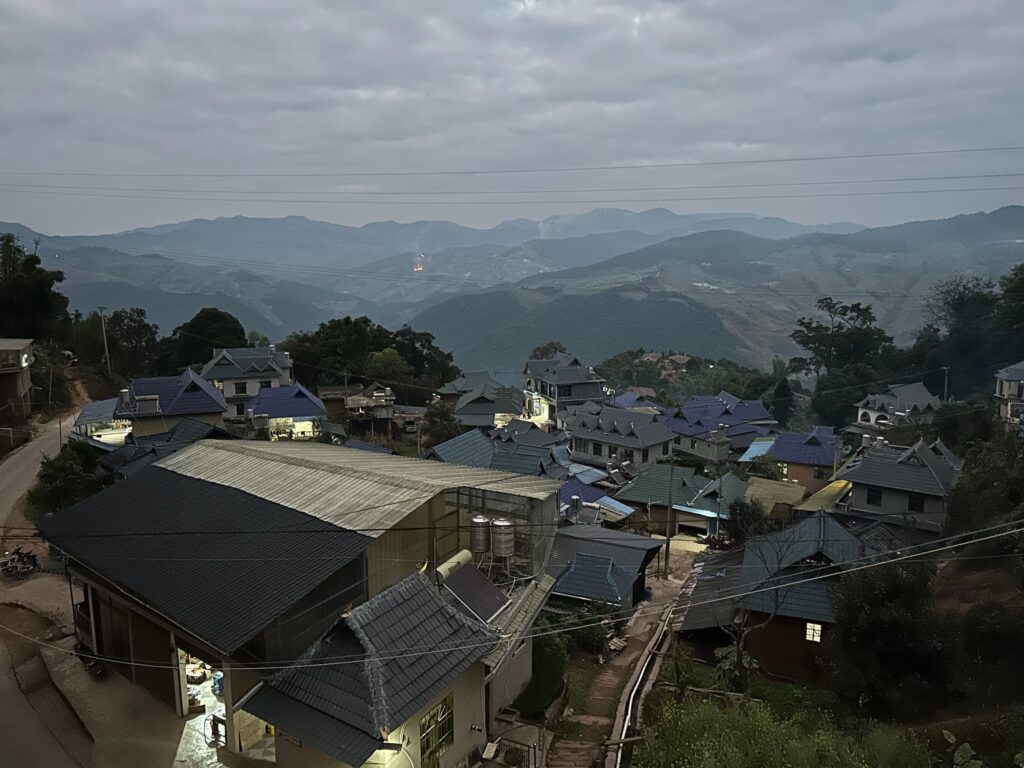
After watching the sun go down, we settle into our beds before a full day of adventures on these mountains. The rooster wakes us up at 5am (sunrise is at 8am because China has neither time zones nor daylight savings and we are pretty far west). Our host harvests a few veggies and cooks up a delish dish of veggie noodles and eggs.
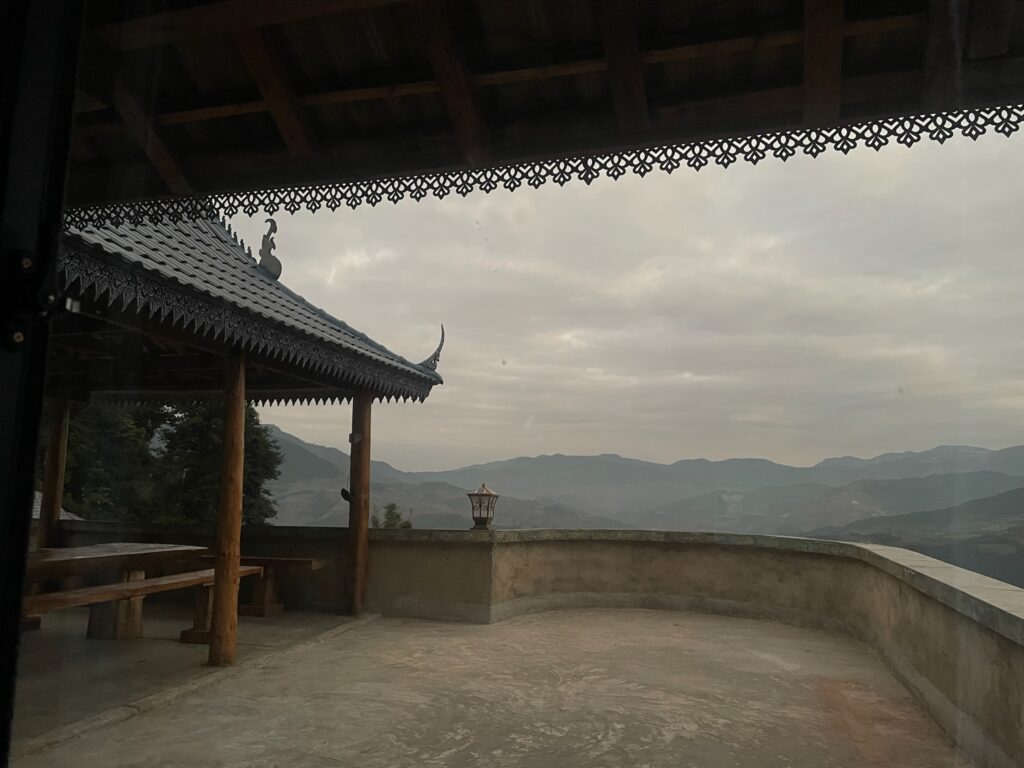
And so we start the day exploring the mountains of Manwa Laozhai. It’s going to be a long, but amazing day ahead. Let’s just say it’s about 7.5h and 10ish miles of scrambling up steep hill terraces, 4,500ft of elevation gain/loss, bushwhacking through jungles, foraging herbal plants, finding ferns from the bygone dinosaur era and truly living off the mountains with what she has to offer!
This is a six part travelogue series exploring a section of Yunnan Province in China, from the autonomous prefecture of Xishuangbanna (西双版纳) to the remote village of Manwa Laozhai (曼佤老寨) and finally to the ancient tea forests of Jingmai (景迈).
- Xishuangbanna
- Village of Manwa Laozhai
- Mountains of Manwa Laozhai
- Canyons of Manwa Laozhi
- Ancient tea forests of Jingmai
- The Bulang People
Absolutely N.O. spam. No more than two emails each week. Learn about injury-free running, race reports, new trail routes, awesome recipes and amazing interviews.